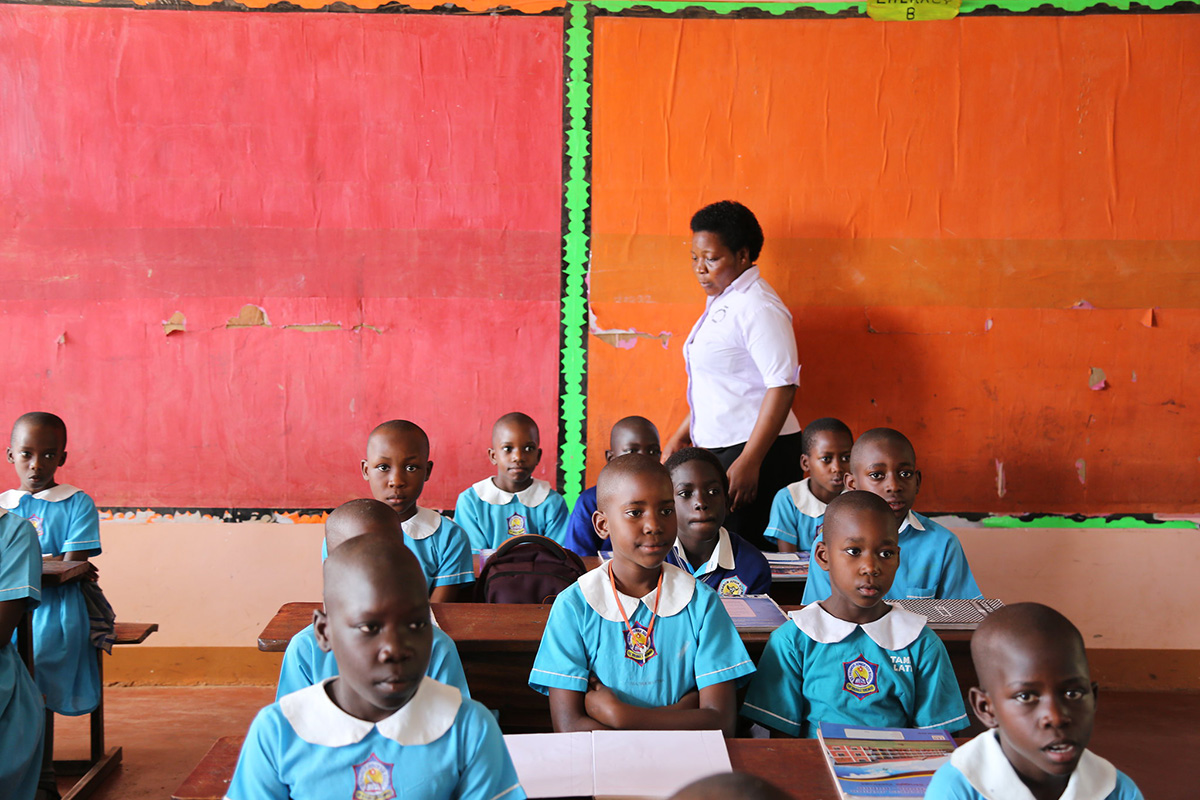A sea change is now fully underway at the Teachers College Record (TCR), the prestigious 120-year-old education journal, that harbingers a broader conversation about the nature of academic research.
“The Record calls itself ‘the voice of scholarship in education,’” says Executive Editor Michelle Knight-Manuel, Professor of Education, a former middle school ESL/French teacher and college advisor whose own research has focused largely on the experiences and needs of immigrant students. “But what voices are we actually representing?”
In the past, according to a content review that Knight-Manuel initiated with the TCR editorial team when she took over the Record a year ago, the answer was: Primarily those from high-profile American research universities and focusing more on American K-12 education. Missing were researchers and educators working at — or affiliated with — community colleges, minority-institutions, public school districts, research institutes and community organizations.
Watch the TC Record’s first virtual booktalk, featuring alumna Bianca Baldridge, author of Reclaiming Community: Race and the Uncertain Future of Youth Work.
But that emphatically changed at the beginning of January with Volume 123, Number 1 of the Record – the first issue with main feature content chosen by Knight-Manuel and her staff.
“This vision for the next phase of TC Record welcomes, invites, embraces and acknowledges the myriad of perspectives regarding research, policy and practice that can support more inclusivity between and among multiple educational stakeholders and have broader impact in making significant progress toward more socially just and thriving communities,” writes Knight-Manuel in her editorial for the issue.
The year's opening issue — the first with feature content chosen by Knight-Manuel and her staff — includes articles with titles such as “They #Woke: How Black Students in an After-School Community-Based Program Manifest Critical Consciousness” and “Are Progressive Texts Necessarily Disruptive? Investigating Teacher Engagement with Gendered Textbooks in Ugandan Classrooms.”
The articles in the year’s opening issue included:
“They #Woke: How Black Students in an After-School Community-Based Program Manifest Critical Consciousness”;
“Invisible Shifts in the Classroom: Dynamics of Teacher Salary and Teacher Supply in Urban China;”
“Are Progressive Texts Necessarily Disruptive? Investigating Teacher Engagement with Gendered Textbooks in Ugandan Classrooms”;
“White Supremacy and Teacher Education: Balancing Pedagogical Tensions when Teaching about Race”;
And “Before the Ad: How Departments Generate Hiring Priorities that Support or Avert Faculty Diversity.”
“We set out to do a lot, and we did most of what we wanted,” Knight-Manuel says. “That includes expanding our focus to post-secondary education and international education, and incorporating perspectives such as feminist post-structuralism, critical race theory and equity and social justice. And our authors include not only full professors, but postdoctoral students, independent researchers, graduate students and assistant professors.”
We set out to do a lot, and we did most of what we wanted. That includes expanding our focus to post-secondary education and international education, and incorporating perspectives such as feminist post-structuralism, critical race theory and equity and social justice. And our authors include not only full professors, but postdoctoral students, independent researchers, graduate students and assistant professors.
—Michelle Knight-Manuel, Executive Editor, Teachers College Record
The opening issue in 2021 also built on other changes that Knight-Manuel instituted during 2020. The Record began sending out a daily tweet, “Relevant Research for the Times,” which highlights work previously published or recognized by the Record that offers important perspectives on current issues such as the COVID pandemic and police violence against Americans of color. [Visit https://twitter.com/TCRecord] The journal launched an aggressive social media push to position the journal as a resource for teachers, parents and others in the community beyond higher education. The editorial board expanded to include experts in fields such as bilingual mathematics education and rural education. And two graduate assistants — Amanda Earl, a doctoral student in International Educational Development, and Catherine Cheng Stahl, a doctoral student in the Program in Curriculum & Teaching — joined the TCR editorial team.
“I see the journal as a space for creating more equitable opportunities and structures for mentoring, especially around the publishing process,” Knight-Manuel writes in her editorial.
But perhaps the signature moment, for Knight-Manuel in Fall 2020, was the publication’s first online book talk. The event was unusual in pairing the featured scholar — TC alumna Bianca Baldridge, Associate Professor in of Educational Policy Studies at the University of Wisconsin-Madison, author of Reclaiming Community: Race and the Uncertain Future of Youth Work (Stanford University Press 2019) — with her reviewer (Paul Kuttner, a sociologist at the University of Utah). But the greater novelty was the size and makeup of the audience.
“We had 47 people, including alumni, students across the nation, viewers from England and Canada,” Knight-Manuel says. “There were re-tweets expressing joy and eagerness in being a part of the event, with scholars saying, ‘Yeah, I gotta go get my popcorn.’ It was that new more interactive way of engaging scholarship that I’m hoping for.”
